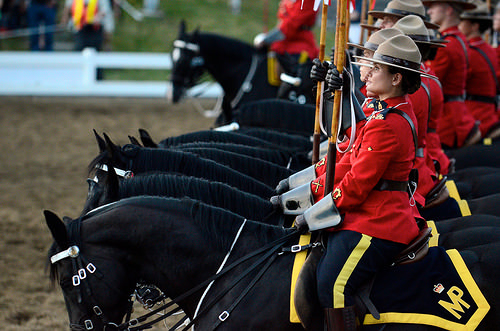‘Zero Tolerance’ Policy Questioned in Canada’s Armed Forces
Former RCMP staff Caroline O’Farrell’s recent allegations on sexual harassment case
By Megan Gartrell, Staff Writer
According to a 2011 Newsweek report, women are more likely to be assaulted by a fellow soldier than killed in combat. News of sexual assault and harassment of women in the military and Canadian armed forces, like the case of RCMP staff sergeant Caroline O’Farrell, who has filed a multimillion-dollar lawsuit against 13 former colleagues, has captured media attention and has many questioning whether these institutions are effectively implementing the ‘zero tolerance’ policy.
According to Forces.ca, women make up over 12 per cent of the Canadian Forces. The website says, “The Canadian Forces has taken great strides in safeguarding the equality of women. By adopting a ‘no exclusion policy,’ it has become one of the only militaries in the world to remove all barriers to full and equal service for all its members.” But O’Farrell’s allegations may bring into question Canada’s policies.
[pullquote]If women do not feel safe in the environment where they must perform, then barriers are still present.[/pullquote]
If women do not feel safe in the environment where they must perform, then barriers are still present. O’Farrell alleges that while working in the Musical Ride during 1986 and 1987, she was harassed, bullied and humiliated. She says she was subjected to an outdated hazing ritual in which she was doused with water and then dragged by her arms and legs through horse stall shavings mixed with manure and urine. She states that when she complained, her attackers harassed her for doing so.

Courtesy of Jamie McCaffrey
The RCMP responded in a news release saying it’s “disappointed” to see a civil suit 25 years after the alleged events. They maintain they are committed to a harassment-free workplace and that discipline can be either formal or informal. But O’Farrell feels the statement regarding the scale of discipline is skewed, saying most of her alleged harassers continue to work in the RCMP today.
While the RCMP defends their actions involving the O’Farrell case, Canadian politicians are weighing in. During a question period in the House of Commons, New Democrat MP Niki Ashton said, the harassment of female officers in the RCMP is an endemic problem. “For too long women officers have suffered abuse and been re-victimized as they’ve come forward.”
While policies and laws are important, it is hard to know whether these are being implemented in barracks and battlefields. Until there is a shift in how women and their roles are perceived in the armed forces and military, cases like O’Farrell’s will likely continue to emerge.
Megan Gartrell is a freelance writer/editor living in Victoria B.C. whose passions include poetry, fiction, music and dance.






























Share the post "‘Zero Tolerance’ Policy Questioned in Canada’s Armed Forces"